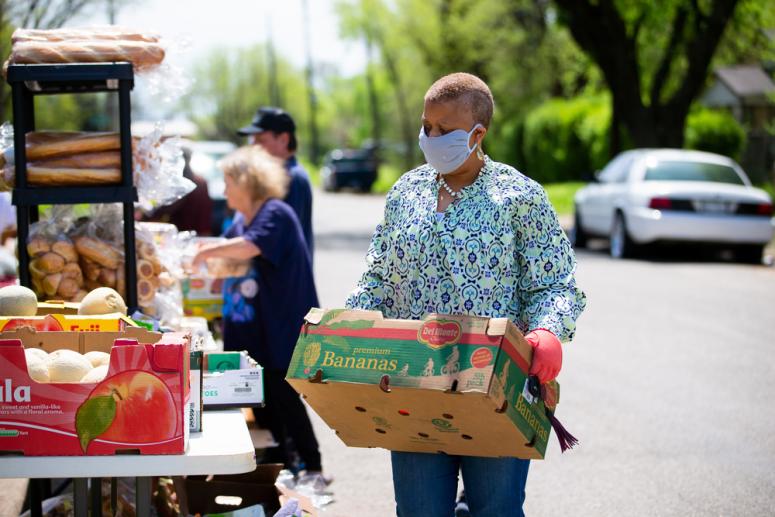
People who cannot consistently afford or access the healthy food they need (known as food insecurity) are less healthy overall and spend more on health care. At the same time, the financial consequences of poor health – greater expenses on health care services, medications, lost wages – can make it harder to afford enough healthy food. It’s a vicious cycle with major impacts. In 2018, 37 million Americans were food insecure, and early reports suggest that food insecurity has nearly tripled as a result of the COVID-19 pandemic. Meanwhile, health care expenses continue to outpace the rest of the economy.
In a recently published study in HSR, an official journal of AcademyHealth, Karl Johnson, Gillings School of Global Public Health, University of North Carolina, and colleagues investigate the degree to which the relationship is bi-directional – that is how much food insecurity affects health expenses and vice versa – with an eye toward breaking the cycle and improving health.
Using recently released data from the Medical Expenditure Panel Survey (MEPS) the researchers were able to assess the relationship between food insecurity and medical expenses over time. They found that the relationship is in fact bidirectional, but also that it is unequal.
Food insecurity is a predictor of health care expenditures: During the two-year study period, people who experienced food insecurity in one year were more likely to have health care expenditures in the next, and those expenses were 25 percent greater than people who did not experience food insecurity. Notably, the study estimated that expenses associated with prescriptions had the largest difference between food insecure and food secure individuals.
Health care expenditures are a predictor of food insecurity: At the same time, every $1000 increase in total health care expenses increased the odds of being food insecure the next year by about 1 percent.
Food insecurity had a greater impact on health care expenses than expenditures had on food insecurity: Because the impact of food insecurity on health care expenditures was relatively larger, this study suggests that upstream interventions to address the root causes of food insecurity may be more effective policy strategies for breaking the cycle and improving health for disadvantaged individuals. Further, according to the researchers, addressing food insecurity as one aspect of a more comprehensive disease management plan may be more effective than treating it as a stand-alone issue.
For more information on this study, please contact Karl T. Johnson, Gillings School of Global Public Health, University of North Carolina, Chapel Hill, NC, USA.
As part of our mission to advance evidence to inform policy and practice, AcademyHealth works with HSR, one of our official journals, to develop and publish plain language summaries of selected articles from each issue. Articles are selected by HSR Editor-in-Chief Austin Frakt, Ph.D., and the summaries are prepared by AcademyHealth staff in partnership with article authors.